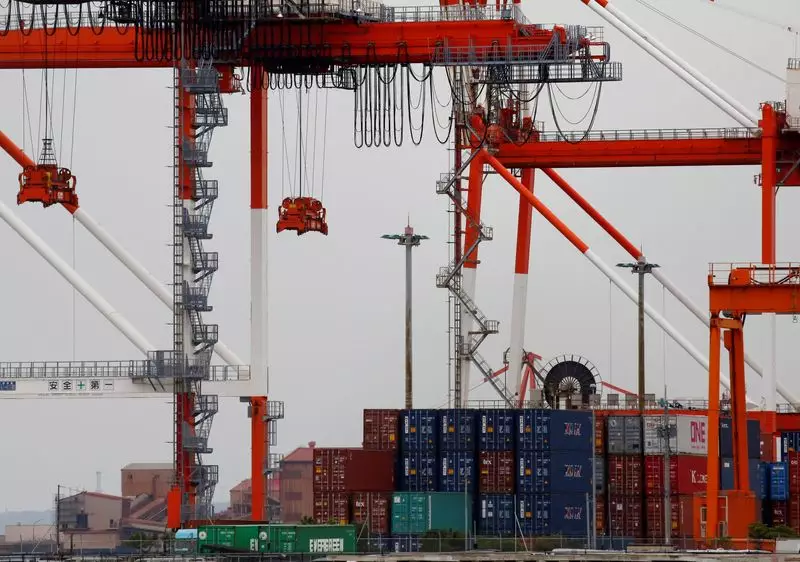Japan’s economy has been heavily reliant on exports for growth, and the recent data shows a mixed picture of the country’s trade performance. While the weak yen has boosted the value of exports, the volume of sales has been shrinking, pointing to underlying weaknesses in global demand.
The data from the Ministry of Finance (MOF) revealed that Japan’s exports surged by 13.5% year-on-year in May, largely due to the weak yen. However, the volume of exports declined by 0.9% during the same period, indicating that the actual demand for Japanese goods is not as robust as the value suggests. This discrepancy raises concerns about the sustainability of Japan’s export-led growth.
The global economic environment remains challenging, with Europe-bound exports weakening, U.S.-bound shipments peaking, and demand from China struggling to grow. China, a key engine of global growth, has been experiencing difficulties in its post-COVID recovery, which has had ripple effects on major exporting nations like Japan. The uncertainties in overseas demand present a significant obstacle to Japan’s economic recovery.
The soft underbelly in Japan’s trade report complicates the Bank of Japan’s path towards monetary tightening. While the central bank has taken steps to reduce its bond purchases and exit years of massive stimulus, the fragile state of the economy raises doubts about the certainty of future interest rate hikes. The uneven nature of economic recovery, as highlighted by the trade data, suggests that policymakers need to tread carefully in adjusting their monetary policies.
Analysts predict that Japan’s net trade performance will drag on its second-quarter GDP growth, with the economy expected to expand modestly by 0.2% quarter-on-quarter. The slowdown in exports, coupled with the challenges in domestic consumption, paints a bleak picture of Japan’s growth prospects. Car sales have been a significant contributor to export growth, but the decline in export volume indicates that the weak yen has artificially inflated the value of these exports.
Japan’s weak yen has had a significant impact on the country’s export performance. While the surge in export value may seem positive at first glance, the underlying weaknesses in global demand and the diminishing export volume raise concerns about the sustainability of Japan’s economic recovery. Policymakers need to address these challenges and adopt appropriate measures to support long-term growth.

